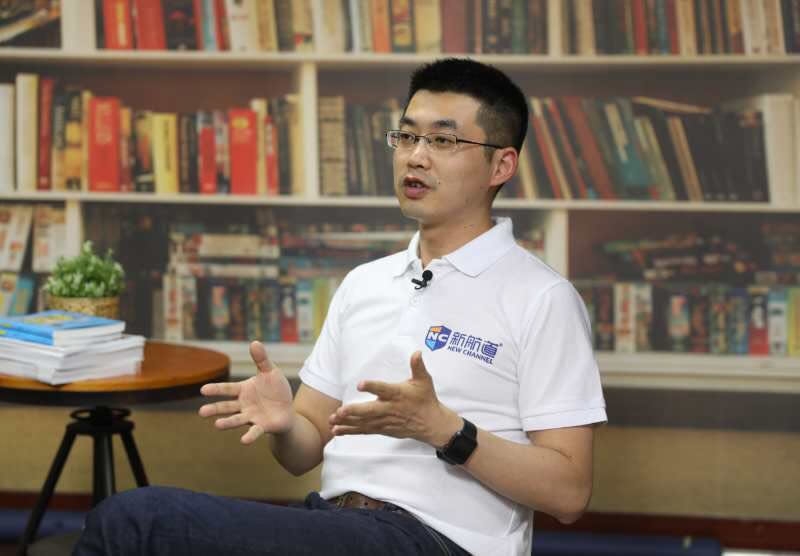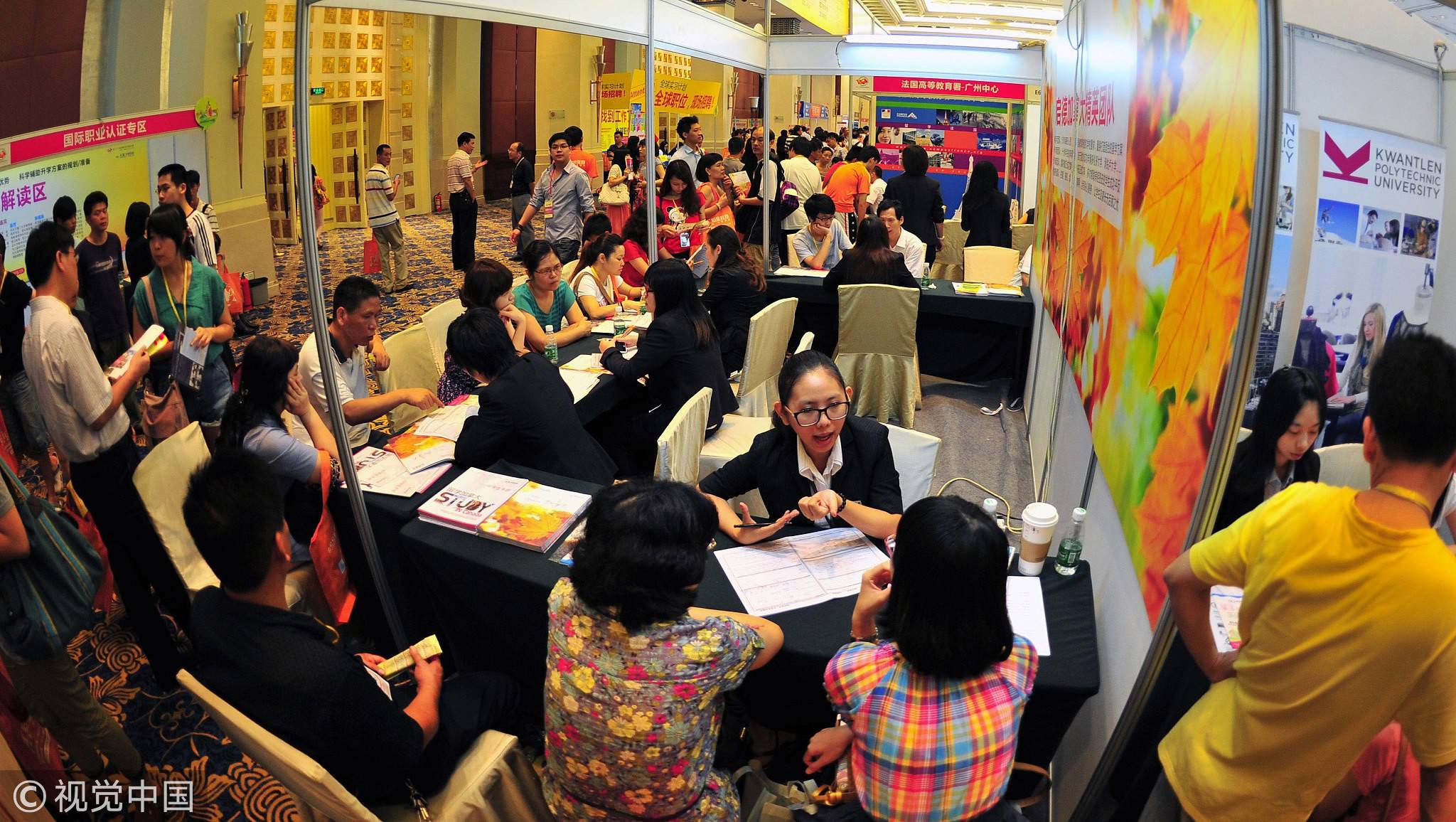
Culture
17:46, 02-May-2018
New Generation: Hard work, drive and perseverance propel Chinese youth to greater heights
By Zou Yun
04:19

Coming to English training school for IELTS training has become a weekend routine for Ren Yishu, a senior student from the University of Science and Technology, over the past few months. For her, it’s great for bringing her one step closer to realizing a dream she's had since she was a teenager.
"I set the goal of studying abroad as early as in Junior High School and have started to pave the way since then. For instance, I applied and was admitted into a university in Beijing, where China’s best resources for education are clustered. I also tried to enrich my resume by doing voluntary work in Indonesia and taking various English tests," said Ren.
Ren Yishu is not alone among her peers in taking training sessions and courses outside of school.
Yishu told CGTN that many senior college students like herself, who will soon enter the work force, are taking this crucial period to hone their skills and build their experiences.

Ran Wei, vice president of New Channel English talking to CGTN about his thoughts on the new generation. /VCG Photo
Ran Wei, vice president of New Channel English talking to CGTN about his thoughts on the new generation. /VCG Photo
"Many students are taking various training courses, with different focuses. Some courses are on public servant tests or graduate school preparation. There are also people who paint, dance and take yoga classes. I have a friend who’s going to the University of Hong Kong for graduate school, and she’s now taking a Cantonese class to get ready," Ren said.
And such high demand for training courses among young people has propelled the sector to becoming one of the fastest growing industries in China. This has pushed Ran Wei, a famed veteran reporter, to join the English language training sector.
As the vice president of New Channel International Educational Group, one of the leading English training organizations in China, Ran told us the market continues to grow about 30 percent annually. And not only that, he has witnessed some new trends coming along with the tide.
"People are not only focused on higher scores in tests, but focused on how to be more competitive in this globalized world. How to survive and thrive in a Western-style academic environment, American colleges. They also want to be competitive in the future working environment. It's not only about linguistic skills, but also other abilities, for instance, critical thinking, the ability to a give a good speech. And another: The capability to cooperate well with their peers," said Ran.

Students at consultation booths about studying abroad. /VCG Photo
Students at consultation booths about studying abroad. /VCG Photo
Most of Ran's students are like Ren Yishu, who were born after the 1990s, also known in China as the “post-90s generation”. This generation was born and raised in a time where the country’s material life has become more affluent. For them, globalization is also on the fast track and the Internet is a given, they have no memories of the country's hardships and tend to be labelled as "spoiled, lazy, and selfish".
But Ran Wei disagrees with the stereotype.
"I know a lot of people think the younger generation doesn't work as hard. But I disagree, a lot of them work even harder than I did. I think they work on something that they are really passionate about, that’s the difference. If they don't like it, it's very hard to force them to work hard on that, but if they feel passionate about what they are doing, I think they could work harder. I have seen plenty of examples of such students," he said.
And Ren Yishu agrees with this train of thought. In her eyes, growing up in the reform era has endowed her generation with great openness and confidence to try out different possibilities, and choose the path they truly belong to.

Students lingering at booths of studying abroad at an education exhibition. /VCG Photo
Students lingering at booths of studying abroad at an education exhibition. /VCG Photo
“We, the post-90s [generation], have lots of choices brought about by the change of the overall environment. But every one of us still needs to choose the right path for ourselves. What I feel really proud about is the post-90s [people] around me know what they want to pursue, and then they make feasible plans to make it happen.” said Ren.
Recently, Ren received an offer from one of her dream schools in the UK. Her efforts and hard work have made her long-awaited seed of hope grow to fruition. And this is a story echoed by many of the post-90s generation in China, whose perseverance have made dreams a reality.

SITEMAP
Copyright © 2018 CGTN. Beijing ICP prepared NO.16065310-3
Copyright © 2018 CGTN. Beijing ICP prepared NO.16065310-3